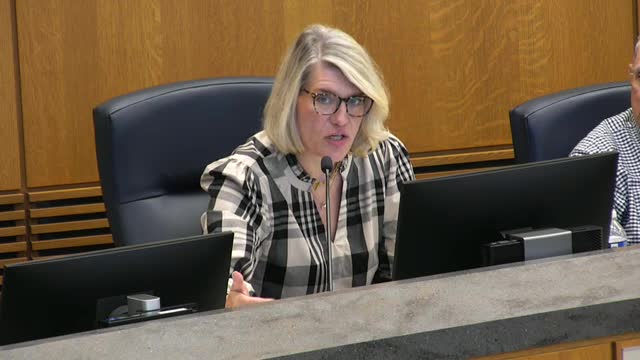Georgetown holds streetlight fee at $2.40; audit finds 6,000+ lights and 78% already LED
Get AI-powered insights, summaries, and transcripts
Subscribe
Summary
Electric Utility staff reviewed the city’s first-year streetlight program, reporting a completed audit of roughly 6,000 poles (78% LED), a $2.40 monthly fee collected citywide to cover maintenance, and lessons learned about contractor and material costs and coordination with other utilities.
Jack Daly, chief business officer for Georgetown Electric, presented a year‑end recap of the city’s newly codified streetlight program and audit during the workshop.
Daly reported the audit identified just over 6,000 streetlights for which the city is responsible and found that roughly 78% of those lights are already LED fixtures. The program includes a $2.40 monthly fee assessed to accounts inside the Georgetown city limits to fund streetlight maintenance; Daly said the fee covers two dedicated linemen, associated equipment and ongoing operations.
Why it matters: The streetlight initiative centralizes reporting, standardizes construction specifications and funds ongoing maintenance through a dedicated fee. Daly said the city established a construction standard (polished aluminum pole with a specified head) to avoid maintaining many different fixture types and that developers or HOAs will retain responsibility for decorative poles installed under separate agreements.
Audit and operations details: Daly said the audit cataloged day‑burners (lights on during the day), damaged and leaning poles and missing handhold covers; staff also found the program initially underestimated contractor labor and some material costs and have adjusted budgeting. Daly said Georgetown’s maintenance crew aims to resolve city‑powered lights within 15 business days on average, though response can take longer when power is provided by other utilities (PEC, Encore) because coordination and scheduling are required.
Coverage and billing: Councilmember Ben confirmed the fee is assessed to all accounts inside the city limits regardless of the customer’s electric provider. Daly clarified that most multi‑unit complexes have individual meters and therefore receive separate charges; master-metered complexes would receive one fee for the account that is billed.
Future options: Daly said staff will hold the fee at $2.40 for the current fiscal year. He discussed a potential future self‑reporting system that would detect outages automatically, but warned that automated heads and telemetry add complexity and maintenance burdens and that implementing a self‑reporting tool could require issuing debt (he modeled a $5,000,000 debt scenario in planning materials). He also said the city’s upcoming advanced metering infrastructure (AMI) procurement will be specified to accommodate future technologies.
No policy vote was recorded at the workshop; Daly presented the audit results and program status for council awareness and to solicit direction on long‑term options such as CIP timing or an automated reporting investment.
